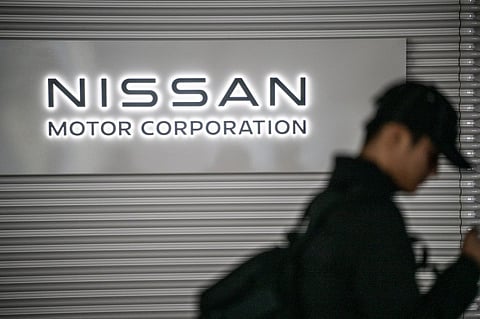
- NEWS
- the EDIT
- COMMENTARY
- BUSINESS
- LIFE
- SHOW
- ACTION
- GLOBAL GOALS
- SNAPS
- DYARYO TIRADA
- MORE

Nissan shares climbed as much as 5.5 percent in early trading Tuesday following local media reports that the Japanese automaker is planning to cut an additional 10,000 jobs in a bid to revive its struggling business.
The heavily indebted carmaker, ranked among the world’s top 10 by unit sales, is expected to announce a record annual loss of approximately $5 billion later in the day.
The reported cuts would reduce Nissan’s global workforce by about 15 percent, building on a previously announced plan in November to eliminate 9,000 positions. The company has not officially confirmed the new figures and declined to comment on the reports, which appeared Monday in Japanese outlets including public broadcaster NHK.
Nissan, like other global automakers, has struggled to remain competitive amid the rapid rise of Chinese electric vehicle makers. It also faces added pressure from U.S. tariffs and an aging vehicle lineup.
A proposed merger with Japanese rival Honda had been seen as a potential lifeline but fell through in February after Honda reportedly insisted on making Nissan a subsidiary, rather than forming a holding company.
Last month, Nissan issued a profit warning, saying it now expects a net loss of 700 billion to 750 billion yen ($4.8 billion to $5.1 billion) for the 2024–2025 fiscal year. That would exceed its previous record annual net loss of 684 billion yen in 1999–2000, during a financial crisis that led to its rocky alliance with France’s Renault.
The company’s troubles date back years and include the 2018 arrest of former chairman Carlos Ghosn, who later escaped Japan hidden in a musical equipment box.
Nissan’s stock has fallen nearly 40 percent over the past year. Ratings agencies have downgraded the automaker to junk status, with Moody’s citing “weak profitability” and an “aging model portfolio.”
In another blow, Nissan earlier this month shelved a recently approved $1 billion plan to build a battery plant in southern Japan, citing a difficult “business environment.”
A major headwind remains the 25 percent tariff imposed on imported vehicles by former U.S. President Donald Trump. Analysts say Nissan is particularly vulnerable.
“Nissan can’t pass the costs on to consumers to the same extent as Toyota or Honda without suffering a significant loss in sales units,” said Bloomberg Intelligence analyst Tatsuo Yoshida. He noted that the company’s customer base is generally more price-sensitive than its Japanese competitors.
Nissan appointed a new CEO in March in an effort to steer the company back on track.
